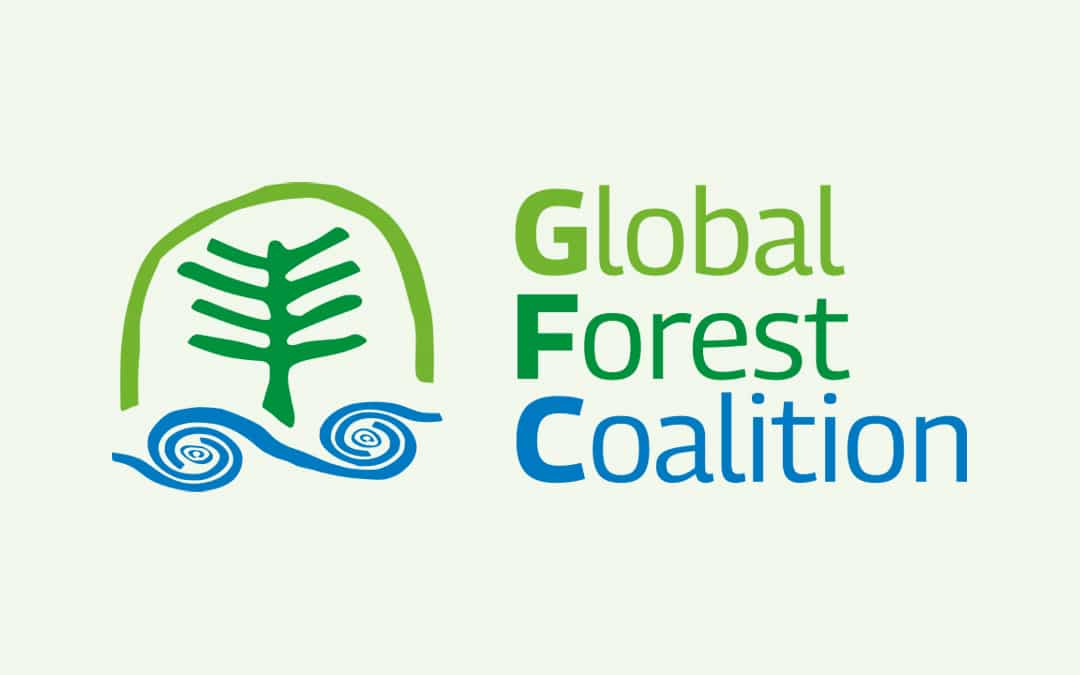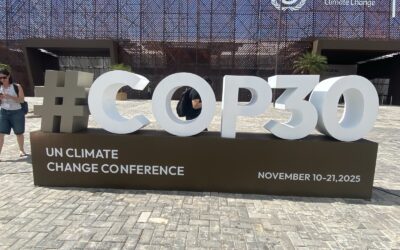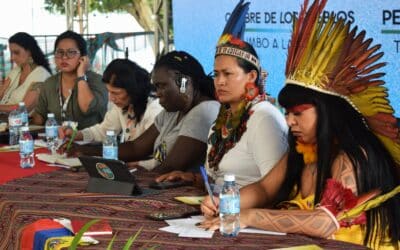We want gender to be mainstreamed in all sustainable development policies related to land management, but we do not want to be mainstreamed into a polluted stream. We call for deep and structural changes to existing global systems of power, decision-making and resource sharing.
As we emphasized yesterday, we caution against developing another set of reductive goals, targets and indicators that ignore the transformational changes required to address the failure of the current development model, which is rooted in unsustainable production and consumption patterns exacerbating gender, race and class inequities.
While the wealthy consume more and more natural resources and are responsible for increasing levels of environmental damage, the poor are suffering from degradation of their soils, agricultural land, forests, water supplies and biodiversity, and alteration of natural weather cycles due to climate change triggering drought and desertification. Excessive consumption of products like (bio) energy and meat by the wealthy is exhausting the soils and lands of the poor. Too much public funding goes to perverse subsidies for unsustainable and speculative activities. Food has been turned into a commodity for a few instead of a right for all.
Women an average earn less, and own less, having fewer capital assets such as land, and fewer land tenure rights. Many land policies and agrarian reform programs benefit men only. Insecure tenure rights are a key cause of land and ecosystem degradation as users have few incentives — and often lack legal status — to invest in more sustainable forms of land use. Pastoralist and other communities in Africa, Asia and Latin America are increasingly being evicted from their ancestral lands to make way for extensive agroindustrial monocultures and cattle ranching.
We need urgent action to halt this land-grabbing. Competition for land triggered by Green Revolution and trade liberalization policies, has increased with the current shift towards a ‘Green Economy’, which promotes an economy based on bio-products (bioeconomy). This forms a significant threat to sustainable land management, as an industrial-scale demand for biomass, whether for bioenergy production or for other ‘bioeconomy’ sectors, will trigger monocultures, an overexploitation of biomass and the removal of wood and other biomass residues that play a key role in maintaining and enhancing soil fertility. The use of often un-tested biotechnologies like large-scale biochar, geo-engineering, synthetic biology and genetically modified trees and crops brings further ecological risks for the planet’s soil biodiversity. These problems are exacerbated by using a definition of forests that includes plantations, despite the biodiversity loss, soil erosion, and depletion of water sources triggered by monoculture plantations. All these problems have disproportionate impacts on women.
The Green Economy also promotes problematic market-based mechanisms that finance forest conservation, soil carbon sequestration and ‘climate smart agriculture’ as a carbon offset opportunity, which has triggered so-called ‘green’ land grabbing.
1. While we support an active post-2015 approach on desertification, and degradation and drought, including by agreeing on the need to halt land and forest degradation and to restore soils and ecosystems, we are very concerned about the ‘net’ or ‘neutral’ approach’ proposed. One cannot simply compensate land degradation at one locations with land restoration in another location, just like one cannot simply replace one forest for another. Forest carbon offsets have often been compared with a person asking another person to go on diet for him: This comparison could be taken almost literally if it is suggested that land degradation in one community, leading to bad harvests and food insecurity, could be compensated for by land restoration in another community. For similar reasons, we also strongly urge you to keep environmental services, forests, soils and agriculture out of carbon markets.
2. National subsidies for large-scale biomass and other unsustainable, risky investments should be replaced with public funding for sustainable and appropriate wind, solar and tidal energy. Governments should stop subsidizing industrialized food production, including in the livestock sector, and instead offer effective support to small-scale farmers and pastoralists.
3. Urgently prioritise measures to halt land-grabbing. Secure land tenure rights and retain free access to natural resources for the most vulnerable groups in society, including women and particularly Indigenous women.
4. Create global and national binding rules and safeguards including by applying the Maastricht Principles on Extraterritorial Obligations of States in the area of Economic, Social and Cultural Rights to protect women and men from the negative impacts of, amongst others, land grabbing, deforestation and large-scale monocultures for fodder and bioenergy production. Improve monitoring systems for foreign investment and its social, economic and environmental impacts.
5. The greatest experts on DLDD are the people who live on the land. We urge Governments to recognize women’s traditional knowledge, which has long proved to be effective in the conservation and stewardship of natural resources, as well as the right to fair and equitable distribution of benefits derived from this knowledge and/or the resources generated by the lands they manage. Funds need to be invested in programs that directly support rights-based forms of sustainable land management that are already known to work, including Indigenous territories and community conserved areas (ICCA’s) and other small-scale, community-led initiatives that have proven to be effective for income generation, food and energy sovereignty (‘buen vivir’).
Women’s roles in land management are often ignored. Land management policies that are gender blind, and violate CEDAW will continue to marginalize women, both legally and socially. It is necessary to protect and respect women’s traditional knowledge, including the traditional knowledge of pastoralist women, and to promote its application/adaptation in sustainable land management strategies more broadly. Sustainable production and consumption are not a myth, many Indigenous peoples have cultivated and protected their lands over millennia, and their territories cover an estimated 22% of the earth’ terrestrial surface.
Intervention by Simone Lovera (Global Forest Coalition) as part of the Women’s Major Group
https://www.facebook.com/WomensMajorGroup




